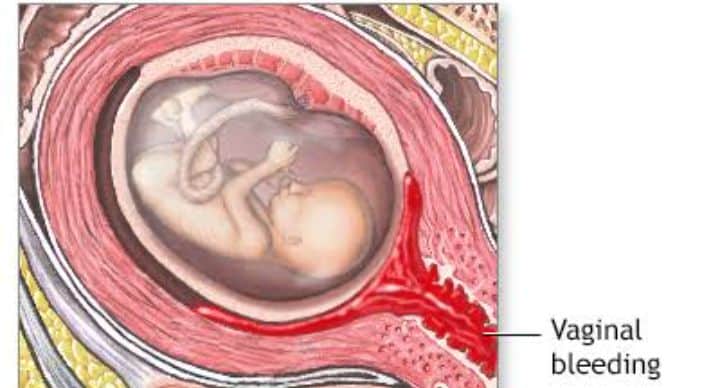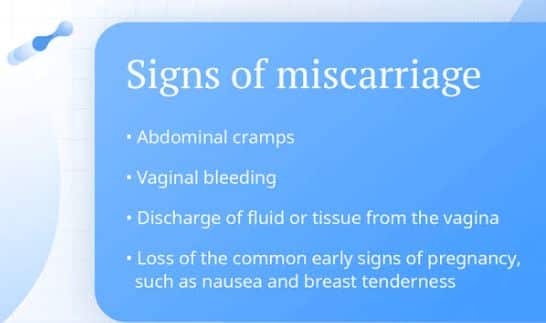An In-Depth Exploration Miscarriage, or spontaneous abortion, refers to the loss of a pregnancy before the 20th week. It is one of the most common complications of pregnancy, with estimates suggesting that up to 20% of known pregnancies end in miscarriage.

The causes of miscarriage are complex, multifactorial, and not always clearly understood. This article explores the various factors and conditions that may contribute to miscarriage, divided into genetic, maternal health, environmental, and lifestyle factors.
1. Genetic Factors.
Genetic abnormalities are one of the most significant causes of miscarriage, particularly in the first trimester. These abnormalities can occur in the developing embryo or fetus and often lead to the termination of the pregnancy because the fetus cannot survive.
Chromosomal Abnormalities the most common cause of miscarriage, especially in the early stages, is chromosomal abnormalities. When the egg or sperm carries an abnormal number of chromosomes (a condition known as aneuploidy), the resulting embryo will have either too many or too few chromosomes. This disrupts the normal development of the fetus and usually results in miscarriage. The most common types of chromosomal abnormalities associated with miscarriage include:Down syndrome (Trisomy 21), where the embryo has three copies of chromosome 21 instead of two.Turner syndrome, where a female embryo has only one X chromosome.Trisomy 13 (Patau syndrome) and Trisomy 18 (Edwards syndrome), which are typically incompatible with life and often lead to early miscarriages.

These genetic errors are generally random and not typically related to the parents’ genetic health. However, advanced maternal age (over 35 years old) is associated with a higher risk of chromosomal abnormalities, as older eggs are more likely to have irregularities.
Inherited Genetic Disorders In some cases, one or both parents may have genetic mutations that can be passed on to the embryo. Conditions like balanced translocations (where a piece of one chromosome is attached to another chromosome) can increase the risk of miscarriage. Although the parent carrying the balanced translocation may not experience any health problems, the child may inherit a genetic imbalance that can lead to miscarriage.
2. Maternal Health Conditions
Maternal health is another crucial factor that can affect pregnancy outcomes. Several underlying health conditions can increase the risk of miscarriage, either by affecting the ability of the uterus to support the pregnancy or by causing other complications that lead to pregnancy loss. Hormonal imbalances, particularly low levels of progesterone, can affect the development of the pregnancy. Progesterone is a hormone essential for maintaining the uterine lining and supporting the early stages of pregnancy.
Insufficient progesterone may prevent the fertilized egg from implanting properly in the uterus or lead to early pregnancy loss. Women with polycystic ovary syndrome (PCOS) or thyroid disorders are particularly at risk for hormonal imbalances that could increase the risk of miscarriage.Autoimmune Disorders Certain autoimmune disorders, such as systemic lupus erythematosus (SLE) and antiphospholipid syndrome, can cause the immune system to mistakenly attack the body’s tissues, including the placenta.

This can interfere with the normal development of the fetus and lead to miscarriage. Women with these conditions may also be at higher risk for other pregnancy complications, such as preeclampsia and fetal growth restriction.DiabetesUncontrolled diabetes, whether pre-existing or gestational, can increase the risk of miscarriage. High blood sugar levels can cause problems with the developing fetus, including birth defects and poor growth, which may result in pregnancy loss.
Managing diabetes with proper medication, diet, and exercise is essential to reducing this risk.Uterine Abnormalities Structural abnormalities in the uterus can make it difficult for a pregnancy to develop normally. Conditions like septate uterus, where the uterine cavity is divided by a fibrous or muscular wall, or fibroids (noncancerous growths in the uterus), can interfere with implantation or cause miscarriage. In some cases, surgical correction can improve pregnancy outcome.
3. Environmental Factors
Environmental factors, including exposure to toxins and pollutants, can also contribute to miscarriage. Some of the most common environmental causes include:Environmental Toxins Exposure to certain chemicals and environmental toxins, such as lead, pesticides, and industrial chemicals, may harm a developing pregnancy. Research suggests that pregnant women exposed to high levels of these substances are at an increased risk for miscarriage. For instance, long-term exposure to solvents used in cleaning products and paints can adversely affect the fetus’s development.
Radiation Exposure to high levels of radiation, such as those from certain medical imaging procedures (e.g., X-rays or CT scans), can increase the risk of miscarriage. However, the risk is generally low unless the exposure is significant. Pregnant women are typically advised to avoid unnecessary radiation during pregnancy.InfectionsInfections caused by viruses, bacteria, or parasites can sometimes lead to miscarriage. Common infections that have been linked to miscarriage include:Listeriosis, caused by a bacterium found in contaminated food Toxoplasmosis, a parasitic infection that can be contracted from handling cat litter or consuming undercooked meat Rubella, which can cause birth defects or miscarriage if contracted during pregnancy Maternal infections that cause fever, inflammation, or damage to the placenta can also increase the risk of pregnancy loss.
4. Lifestyle Factors
Certain lifestyle choices and behaviors can increase the likelihood of miscarriage. These factors include:SmokingSmoking during pregnancy is associated with a higher risk of miscarriage, as well as other complications such as preterm birth and low birth weight. The chemicals in tobacco smoke, including nicotine and carbon monoxide, can interfere with the placenta’s ability to supply oxygen and nutrients to the fetus, leading to fetal growth restriction and miscarriage.
Alcohol and Drug Use Drinking alcohol or using illicit drugs during pregnancy can severely harm the developing fetus and increase the risk of miscarriage. Alcohol is known to interfere with fetal development, and even moderate drinking can increase the risk of pregnancy loss. Drugs, particularly those that affect the nervous system, such as cocaine, heroin, and methamphetamines, are also associated with a higher risk of miscarriage.
Excessive Stress While the direct link between stress and miscarriage is not fully understood, studies suggest that chronic stress may contribute to an increased risk. Stress hormones like cortisol can affect the body’s physiological responses, potentially leading to complications in pregnancy.Obesity and Physical Inactivity Obesity has been linked to an increased risk of miscarriage, possibly due to its association with hormonal imbalances, insulin resistance, and chronic inflammation. Women who are significantly overweight may experience complications such as irregular ovulation or difficulty maintaining a healthy pregnancy. In contrast, a sedentary lifestyle can also contribute to pregnancy complications, though moderate physical activity is generally beneficial.
5. Other Factors and Unknown Causes in many cases, the exact cause of a miscarriage cannot be determined. While some factors can be identified through tests, a significant portion of pregnancies end without an apparent reason. It’s also important to note that some women may experience recurrent miscarriage, defined as having three or more consecutive miscarriages, which may be caused by a combination of genetic, anatomical, or immune factors that are not easily diagnosed.

Miscarriage is a multifactorial event, and its causes can be traced to a combination of genetic, maternal, environmental, and lifestyle factors. While some causes, like chromosomal abnormalities, are beyond the control of the mother, others—such as lifestyle choices and managing health conditions—are within a woman’s ability to address. It is important for women to seek medical advice and monitoring, particularly if they have risk factors for miscarriage, in order to improve the chances of a healthy pregnancy.




